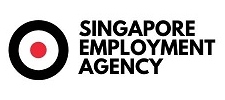Every nation walks a fine line: how do you attract the global talent needed to fuel economic growth without displacing your local workforce? It’s a strategic balancing act that shapes a country’s future. Singapore, renowned for its meticulous approach to talent and economic planning, is once again fine-tuning its framework.
Recent announcements from the Ministry of Manpower (MOM) signal a clear, calculated shift. These are not minor administrative tweaks; they are strategic moves designed to enhance the quality of the foreign workforce, ensure they complement local talent, and push the entire economy towards higher-value activities.
For business owners, HR managers, and prospective employees, understanding these changes is not just important—it’s essential for future planning. Let’s break down exactly what is changing and what it means for you.
The Core Strategy: A Deliberate Push for Quality
The central theme of these updates is the “uplifting of quality,” particularly for mid-skilled foreign professionals. The government has been explicit in its goal: to benchmark the calibre of S Pass holders to the top one-third of local Associate Professionals & Technicians (APTs).
This policy forces a crucial question for employers: does this hire bring skills that justify a higher investment? It’s a gentle but firm nudge, encouraging businesses to either invest more in high-calibre foreign talent, double down on training local employees, or explore automation. The ultimate aim is a more productive, resilient, and advanced economy.
Deep Dive: The S Pass Adjustments
The most significant changes are focused on the S Pass, which caters to mid-skilled foreign employees. Employers must prepare for increased costs on two fronts: qualifying salaries and levies.
1. Higher Qualifying Salaries
Effective from 1 September 2025 for new applications (and 1 September 2026 for renewals), the minimum qualifying salary for S Pass holders will increase:
- All Sectors (excluding Financial Services): Rises from S$3,300.
- Financial Services Sector: Rises from S$3,800.
Crucially, this salary threshold increases progressively with age. For an experienced S Pass holder in their mid-40s, the new qualifying salary will rise to S$4,800 (or S$5,650 in Financial Services).
2. Increased S Pass Levy
In addition to higher salaries, the Tier 1 S Pass levy will be raised. From 1 September 2025, the monthly levy will increase from S650**. This harmonises the Tier 1 rate with the existing Tier 2 rate, creating a single, higher cost baseline for all S Pass holders.
A Steady Hand on the Employment Pass (EP)
While the S Pass is undergoing adjustments, the qualifying salaries for the Employment Pass (EP)—for high-skilled professionals, managers, and executives—will remain stable for this round.
However, it’s important to remember that the EP recently underwent its own significant increase. The current, higher thresholds took effect on 1 January 2025 for new applicants and will apply to renewals from 1 January 2026:
- General Minimum EP Salary: S$5,600
- Financial Services Minimum EP Salary: S$6,200
The stability in the EP requirements suggests the government believes the current framework is effectively attracting the top-tier talent it seeks, with the present focus shifting to elevating the mid-tier segment.
Expanding the Base: New Sources for Work Permit Holders
Singapore’s strategy extends beyond PMETs. To ensure essential services and industries remain adequately staffed, the government is broadening its reach for non-PMET Work Permit holders.
From 1 June 2025, Singapore will include Bhutan, Cambodia, and Laos in its list of Non-Traditional Sources (NTS). This adds to the existing list which includes Bangladesh, India, Myanmar, the Philippines, Sri Lanka, and Thailand.
For employers hiring Work Permit holders for specific roles under the NTS Occupation List (such as cooks, food processing workers, or certain manufacturing operators), there is a key requirement: they must be paid a fixed monthly salary of at least S$2,000. This sets a clear wage floor, providing worker protection while helping businesses in these sectors meet their manpower needs.
The Takeaway for Your Business
These multifaceted changes present a clear picture of Singapore’s forward-looking workforce strategy. For businesses, the key takeaways are:
- Increased Cost for Mid-Skilled Talent: Hiring S Pass holders will become more expensive, requiring a clear business case for each role.
- Strategic Workforce Review: This is the time to evaluate your team’s composition. Is there an opportunity to hire and train more local APTs? Could technology or automation fill certain gaps?
- Broader Options for Specific Roles: The expansion of NTS countries may provide new avenues for filling crucial operational roles in sectors like F&B and manufacturing.
Navigating these evolving regulations requires careful planning and foresight. By understanding the intent behind the policies, businesses can not only ensure compliance but also align their talent strategy with Singapore’s economic vision.
If you like to submit a question, or would like us to touch on certain topics, you may email us at [email protected]. When in doubt, seek legal advice or consult an experienced licensed Employment Agency with the Ministry of Manpower.
Yours Sincerely,
The editorial team at Singapore Employment Agency
Little Big Employment Agency Pte. Ltd. is a licensed Employment Agency with the Ministry of Manpower with license number 19C9790.

